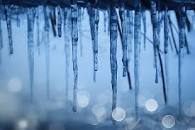Your building is probably the most valuable asset you own. Prevention of damage to your building is of utmost importance to you as a property owner. Property damage can mean unforeseen business interruption costs, higher insurance costs and major inconveniences for your organization. Each winter, frozen pipe damage to buildings has been a major problem for property owners. Winter is upon us, and making sure you’re prepared will help you avoid the messy and often very expensive issue of frozen pipes. Below is some important information to help prevent frozen pipes, and steps to prevent more problems if you find pipes have become frozen.
Some areas of your building may be more at risk to freezing pipes than others. The areas most at risk are generally basements, crawlspaces, attics, garages, unheated rooms, sprinkler systems and exterior walls.
Here’s some ways you can prevent pipes from freezing: ■ Keep temperatures above 50 degrees Fahrenheit at all times. ■ Seal and repair spaces around windows and doors that allow cold air flow. ■ Fill cracks and holes in walls to prevent cold air flow. ■ If an area is not going to be used for an extended period of time, drain the water from those pipes and turn off the water supply to that area. ■ Be sure water-based fire protection systems are winterized—confirm with your sprinkler system service company. ■ Increase insulation in areas where pipes are located. ■ Consider installing products like pipe sleeves, heat tape or heat cable on exposed water pipes. ■ If your building is unoccupied for extended periods of time, appoint some one to check on the building to ensure the heating and plumbing systems are working properly.
Should you suspect you have frozen pipes: ■ Call a qualified plumber immediately. ■ Shut off the main water valve and leave faucets open until repairs are made. ■ Apply heat to the frozen section of pipe using a portable space heater and an electric heating pad wrapped around the pipe, or by wrapping the pipes with towels soaked in hot water. ■ Check all other faucets in your building to find out if you have additional frozen pipes.
Take measures today to prevent pipes from freezing in your building. Prepare your property to minimize the extensive damages that can result from freezing pipes in these cold winter months.

